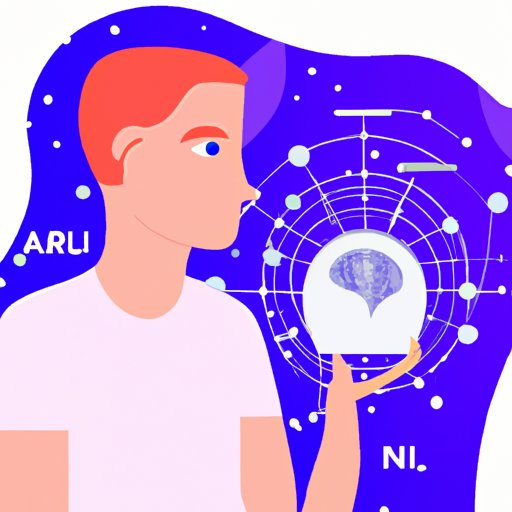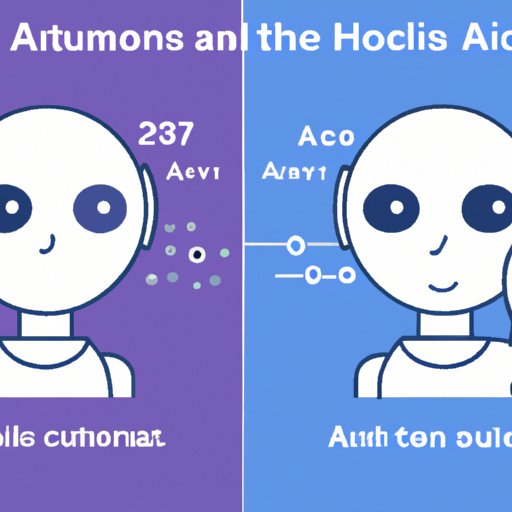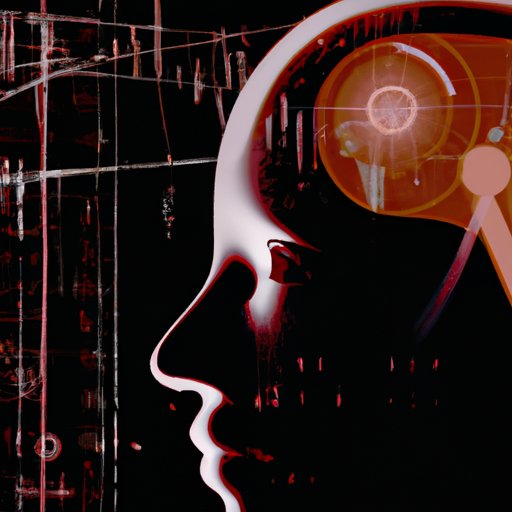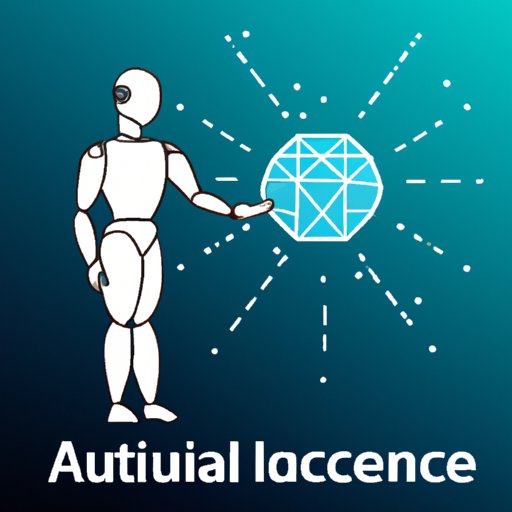Introduction
Artificial intelligence (AI) is a rapidly expanding field of technology that has the potential to revolutionize many aspects of our lives. From medicine to transportation, AI has already proven itself to be a powerful tool for improving efficiency and accuracy. But one of the most fascinating questions surrounding AI is: Can it predict the future?
In this article, we will explore what AI is and how it is being used to make predictions about the future. We will assess the accuracy of AI-powered predictions and compare them to human predictions. We will also investigate whether AI can outperform human forecasters when it comes to predicting the future. By the end of this article, readers should have a better understanding of AI’s potential to predict the future and its current limitations.
Examining the Potential of AI to Predict Future Events
Before we can assess the potential of AI to predict the future, we must first define what AI is. AI is a broad term that encompasses any form of technology that can learn from its environment, adapt to new data, and make decisions without direct human input. AI is used in a variety of fields, including robotics, natural language processing, image recognition, and machine learning.
AI has the potential to be used in predictive analytics, which is the process of using data to make predictions about future events. AI algorithms are able to analyze large amounts of data quickly and accurately, which makes them well-suited for making predictions about the future. For example, AI can be used to forecast changes in the stock market, predict consumer behavior, and even anticipate natural disasters.

How AI is Being Used to Make Predictions About the Future
AI is already being used to make predictions about the future in a variety of ways. For example, AI-powered weather forecasting systems are able to provide more accurate forecasts than traditional methods. AI is also being used to predict customer behavior, helping companies to better understand their target audiences and develop more effective marketing strategies. Additionally, AI is being used to detect fraud and cyber threats, helping organizations to stay one step ahead of malicious actors.
AI is also being used to make predictions about the economy. For example, AI-powered economic models are being used to identify trends and patterns in the markets and make predictions about future economic activity. Similarly, AI is being used to analyze data from financial markets and make predictions about stocks and other investments.

Comparing AI Predictions to Human Predictions
When it comes to predicting the future, AI and humans have different strengths and weaknesses. On the one hand, AI algorithms are able to process large amounts of data quickly and accurately, making them well-suited for making predictions about the future. On the other hand, humans are able to draw on their experience and intuition when making predictions, which can often lead to more accurate results.
However, it’s important to note that AI is still far from perfect when it comes to predicting the future. AI algorithms are only as good as the data they are given, and they may not always be able to account for unexpected events or factors. Additionally, AI predictions may not always be as accurate as those made by experienced human forecasters.

Investigating Whether AI Can Outperform Human Forecasters
Given the potential of AI to make predictions about the future, many researchers are now investigating whether AI can outperform human forecasters when it comes to predicting the future. Studies have shown that AI algorithms can be used to make accurate predictions about the stock market, consumer behavior, and even natural disasters. However, these studies have also found that AI algorithms are not always more accurate than human predictions.
A 2018 study published in the journal Nature found that AI algorithms could outperform human forecasters when predicting the outcome of sporting events. The study found that AI algorithms were able to make more accurate predictions than human experts when predicting the outcomes of basketball games. However, the study also found that AI algorithms were not better than human experts at predicting the outcomes of football games.
Conclusion
In conclusion, AI has the potential to predict the future with greater accuracy than human forecasters. AI algorithms are able to process large amounts of data quickly and accurately, giving them a unique advantage when it comes to making predictions about the future. However, AI algorithms are not always more accurate than human predictions, and further research is needed to determine whether AI can truly outperform humans when it comes to predicting the future.
(Note: Is this article not meeting your expectations? Do you have knowledge or insights to share? Unlock new opportunities and expand your reach by joining our authors team. Click Registration to join us and share your expertise with our readers.)
